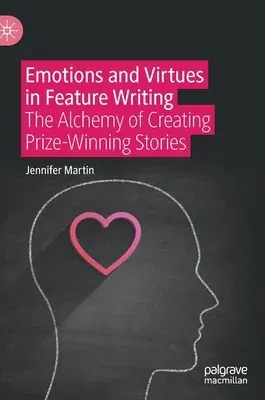Jennifer Martin
(Author)Emotions and Virtues in Feature Writing: The Alchemy of Creating Prize-Winning Stories (2021)Hardcover - 2021, 23 March 2021

Qty
1
Turbo
Ships in 2 - 3 days
In Stock
Free Delivery
Cash on Delivery
15 Days
Free Returns
Secure Checkout

Print Length
270 pages
Language
English
Publisher
Palgrave MacMillan
Date Published
23 Mar 2021
ISBN-10
3030629775
ISBN-13
9783030629779
Description
Product Details
Author:
Book Edition:
2021
Book Format:
Hardcover
Country of Origin:
NL
Date Published:
23 March 2021
Dimensions:
21.01 x
14.81 x
1.75 cm
ISBN-10:
3030629775
ISBN-13:
9783030629779
Language:
English
Location:
Cham
Pages:
270
Publisher:
Weight:
503.49 gm